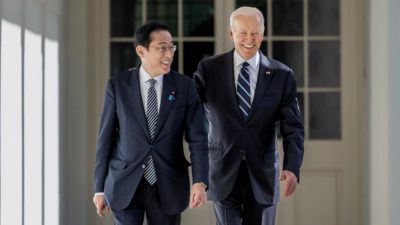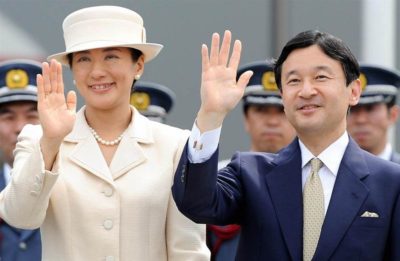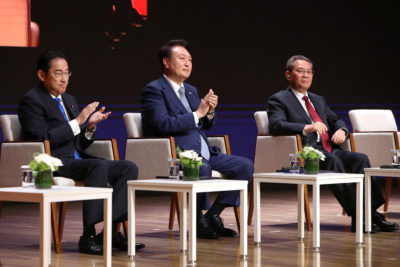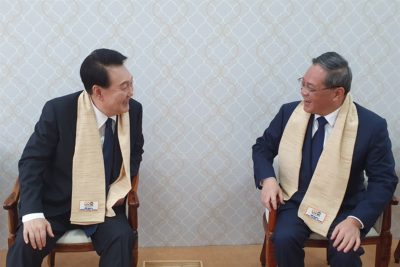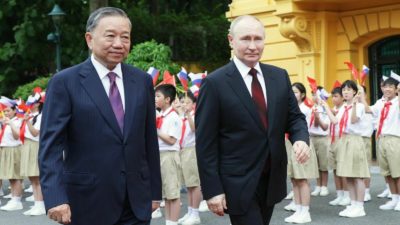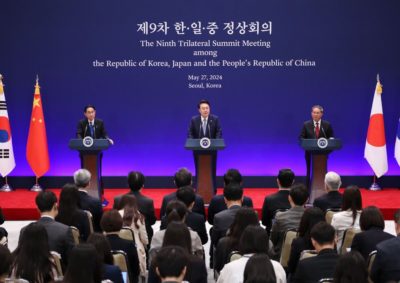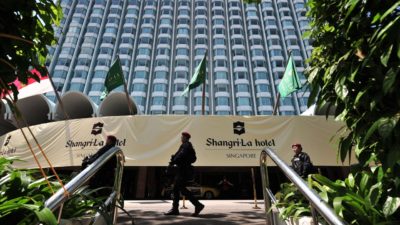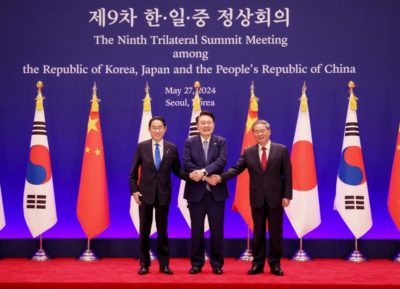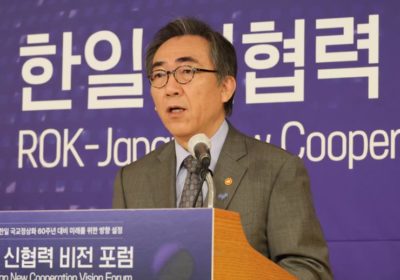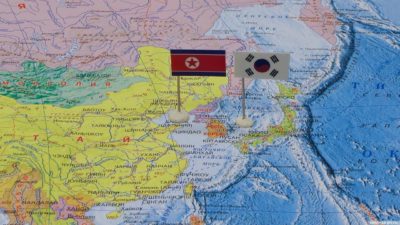Will the US-Japan military alliance make any difference?
The ongoing upgrades to the US-Japan military cooperation signals new regional developments. In reality, however, this upgrade is a continuation of the US strategy in the Pacific to build military outposts so that China can be deterred and tackled. On the one hand, it is militarizing Japan. On the other hand, the sale of weapons keeps bringing money to the US military-industrial complex. Ultimately, this alliance will do little to serve the purpose of ‘containing’ China.
Some aspects of the visit of the Emperor of Japan and his wife to the United Kingdom
At the end of June, the Japanese imperial couple paid a seven-day visit to the United Kingdom. Some aspects of this event and a number of accompanying political events in Japan, which is becoming one of the most important participants in the current stage of the “Great World Game”, are undoubtedly of interest…
The China-Japan-ROK trilateral summit on May 26-27 in Seoul Part Three: The Summit between the three leaders and its outcome
The participants in the trilateral summit discussed ways to promote cooperation in six specific areas: economy and trade, sustainable development (including the response to climate change), healthcare, science and technology, disaster management and security, and exchange programs…
The China-Japan-ROK trilateral summit on May 26-27 in Seoul. Part two: the bilateral meetings
Li Qiang, Premier of the State Council of the People’s Republic of China, arrived in Seoul around noon. This was his first visit to the country since taking office in March 2023. Lee and Yoon’s first meeting, in September 2023, took place in Indonesia on the margins of the ASEAN summit…
Some comments on recent developments in East Asia
The visits of Russian President Vladimir Putin to the North Korea and Vietnam from June 18 to 20 were a remarkable development not only in relations between the countries, but also in terms of their assessments of how the political situation in East Asian as a whole is developing. As a result of the talks between Vladimir Putin and the North Korean and Vietnamese leaders, an extensive list of measures was drawn up and enshrined in bilateral documents…
The China-Japan-ROK trilateral summit on May 26-27 in Seoul. Part one: the long road to the meeting
A three-party summit between South Korea, Japan and China was held on May 26-27, 2024. On the first day of the event, South Korea’s President Yoon Seok-yeol held separate bilateral talks with Japanese Prime Minister Fumio Kishida and Premier of the State Council of China Li Qiang, followed by a trilateral meeting, the announcement of a joint statement, and, on the next day, a business forum…
Events on the Sidelines of the Annual Shangri-La Dialogue
At the end of May and beginning of June this year, another annual forum on the generalized theme of ensuring regional security was held in the luxurious Shangri-La Hotel in Singapore. A number of notable events took place, both in the plenary sessions and “on the sidelines”.
The PRC-Japan-Republic of Korea Summit was held in Seoul
After a hiatus of more than three years, the PRC-Japan-Republic of Korea trilateral configuration resumed its work in Seoul at the end of May this year. However, its prospects remain unclear due to the extremely complex political environment in the East Asian region. On 26-27 May, the capital of the Republic of Korea, Seoul, hosted a series of summit meetings with the participation of Chinese Prime Ministers Li Qiang and Japanese Prime Minister Fumio Kishida…
Some events that arose immediately after the resumption of the China-Japan-South Korea negotiation platform
After more than a 3-year hiatus, Seoul hosted the China-Japan-South Korea trilateral summit on May 26-27, which became a remarkable event in the overall transformation process taking place in East Asia. This event organically fit into a series of previous and subsequent equally significant developments occurring in this region…
The Meeting of China’s and South Korea’s Foreign Ministers — Political Background and Perspective of the China–Japan–South Korea summit
On May 13-14, 2024, the Minister of Foreign Affairs of the Republic of Korea Cho Tae-yul came with an official visit to China, the first such visit in six years. The main event during this trip was his talks with Wang Yi, his Chinese counterpart. The guest also had a meeting with representatives of Chinese business circles and South Korean businessmen operating in China…
New American dream: to harm China and Russia by burying the Korean status quo
Several status quo situations continue to prevail around the world, including between China and the United States. The status quo is the accepted political term for unresolved global crises, most of which date back to the Second World War. In essence, it means that there is a more or less tacit agreement between rival powers to keep the crises in question frozen. The Korean peninsula, the Taiwan Strait and Western Sahara are just a few examples of these frozen or latent conflicts…
Japan's Prime Minister and Foreign Minister have travelled abroad again amid growing turbulence at home
In April and early May this year, Japan was particularly active in the current phase of the “Great World Game”. This, by the way, is further proof of the fact that Tokyo has returned to the global game table (after the catastrophe of 1945) as one of the most important participants in all that is happening on it today. Let us recall the state visit of Prime Minister Fumio Kishida to the United States in the first half of April.
